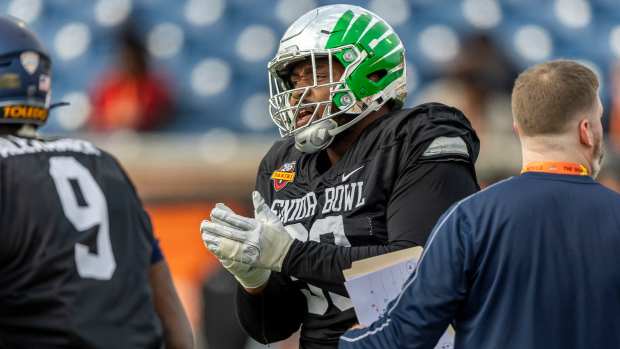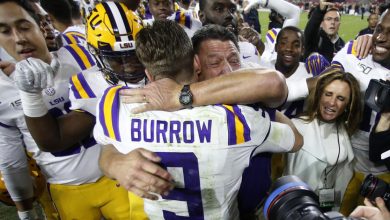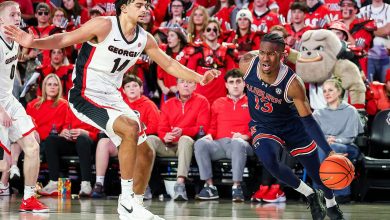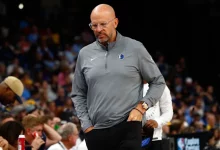Latest news on ACC and ESPN will have a big impact on Miami vs. Notre Dame football rivalry

The college football landscape is always evolving, with conferences, media deals, and scheduling decisions continuously shaping the competitive structure. Among the most storied rivalries in college football is the Miami Hurricanes vs. Notre Dame Fighting Irish, a matchup that has sparked excitement for decades. This rivalry, rooted in both historical significance and geographical appeal, has captured the imaginations of fans from both programs. However, the future of this rivalry is now in question, as recent developments involving the Atlantic Coast Conference (ACC) and ESPN could dramatically alter the frequency and structure of this game, with broad implications for both Miami and Notre Dame.
The convergence of several key factors—ESPN’s media rights deals, ACC conference realignment, and the changing dynamics of college football scheduling—means that the classic Miami vs. Notre Dame showdown could soon look very different. Let’s take a closer look at the latest news, explore how it might impact the rivalry, and analyze the long-term consequences for both teams.
1. The Changing Landscape of the ACC and Media Rights Deal
The Atlantic Coast Conference (ACC) has long been an important conference in college football, with its member teams comprising some of the most competitive programs in the country. Miami, which has been a part of the ACC since 2004, has experienced ups and downs in its time in the conference but remains a key part of the league’s identity. However, recent shifts in the college football world are forcing the ACC to reconsider its future structure, which could have ripple effects on how it schedules games against other powerhouses like Notre Dame.
At the core of the ACC’s current dilemma is its media rights deal with ESPN, which was signed in 2016 and runs through 2036. The deal brought a significant financial windfall to the conference but has also led to some complications. A major issue for ACC schools, particularly the high-profile teams, is that the revenue-sharing model doesn’t give them as much financial flexibility as those in other power conferences, such as the Big Ten or the Southeastern Conference (SEC).
This disparity in media rights revenue has sparked debate within the conference. Teams like Miami, Florida State, and Clemson have reportedly expressed frustration about being locked into a contract that doesn’t keep pace with the increasing value of media rights for college football. As these schools continue to push for more equitable revenue distribution, the ACC faces pressure to adapt.
One possible outcome of these tensions could be realignment, as teams look to join conferences with more lucrative media deals. The Big Ten and SEC are the two primary conferences that could benefit from such realignment, offering more competitive schedules and significantly higher payouts from their own media deals.
For Miami, this situation presents a unique dilemma. While they’ve enjoyed rivalries within the ACC, their status as a football powerhouse may not be fully reflected in the financial rewards offered by the current media rights deal. If Miami were to leave the ACC for a more lucrative conference, it could have significant consequences for longstanding rivalries, including the one with Notre Dame.
2. The Notre Dame Factor: An Independent’s Struggle to Find a Home
Notre Dame’s situation is another crucial aspect to consider when analyzing the future of the Miami vs. Notre Dame rivalry. The Fighting Irish are one of the most unique programs in college football, as they’ve historically maintained their status as an independent school. While they’ve been able to schedule marquee matchups with nearly every major program, including Miami, the growing influence of the Power Five conferences has put pressure on Notre Dame to eventually commit to a conference.
Despite this, Notre Dame has remained fiercely independent, with the exception of a partial agreement with the ACC for scheduling purposes. This agreement, which started in 2014, allowed Notre Dame to schedule a number of games against ACC teams, while still maintaining their independence. While the partnership has benefited both parties, it’s also brought some challenges—particularly as Notre Dame has faced increasing pressure from the college football playoff committee to align with a conference for postseason eligibility.
With the latest developments regarding ESPN and the media rights market, Notre Dame’s future in college football scheduling becomes even more uncertain. The rise of expanded playoff formats, as well as the shift toward more conference-centric scheduling, may force Notre Dame to reconsider its independent status. Should the Irish eventually join the ACC full-time or even the Big Ten, it could significantly alter the scheduling dynamics for future matchups with Miami.
3. ESPN’s Role in the Shifting Dynamics
ESPN has always been a major player in the world of college football, serving as the primary broadcast partner for many conferences, including the ACC. The relationship between ESPN and the ACC is vital to the future of both parties. With ESPN’s vast resources and the growing importance of college football in the national sports landscape, ESPN has the power to shape which teams and matchups get the most exposure.
As media rights deals continue to evolve, ESPN’s influence over scheduling becomes even more crucial. The network has invested heavily in ensuring that marquee matchups are featured prominently on national television. For Miami vs. Notre Dame, ESPN has long been the home of their games, bringing the rivalry to a national audience. However, with ESPN’s focus on aligning their programming with the interests of conferences like the SEC and Big Ten, it’s possible that the frequency of Miami vs. Notre Dame games could diminish in favor of other matchups with greater national intrigue.
Additionally, ESPN’s focus on maximizing viewership and revenue could lead to changes in how non-conference games are scheduled. If the ACC and Notre Dame continue their collaboration, it’s possible that the rivalry will remain a fixture on the schedule. However, if Notre Dame were to shift its focus toward conference games, particularly in the Big Ten, this could diminish the number of cross-conference games with Miami.
ESPN’s ability to drive the narrative and control the scheduling of key games has profound implications for the Miami vs. Notre Dame rivalry. If the matchup becomes less frequent, it could diminish the rivalry’s national relevance and reduce the amount of attention it receives from fans and media.
4. The Future of the Miami vs. Notre Dame Rivalry
Given the shifting dynamics involving the ACC, Notre Dame, and ESPN, it’s clear that the future of the Miami vs. Notre Dame rivalry could look very different in the coming years. Both schools have passionate fanbases, and the rivalry itself carries significant historical weight. However, several factors are now threatening its continued prominence:
1. Conference Realignment and Scheduling Changes
If Miami were to leave the ACC for a more lucrative conference or if Notre Dame were to join a Power Five conference full-time, the rivalry could take a back seat in favor of more conference-centric matchups. The nature of college football scheduling is changing, with conferences like the Big Ten and SEC moving toward more rigid, balanced schedules that prioritize intra-conference matchups. This could result in fewer opportunities for non-conference games, including the one between Miami and Notre Dame.
2. Media Rights and Exposure
As ESPN’s influence continues to grow, the network’s programming decisions will heavily influence which games get the most attention. If the Miami vs. Notre Dame rivalry isn’t featured as prominently, it may lose some of its national allure. The growing power of the SEC and Big Ten, both of which have lucrative media deals with ESPN, could shift the focus of the network toward those conferences, relegating rivalries like Miami vs. Notre Dame to less prominent timeslots or less frequent meetings.
3. The Desire for Postseason Relevance
Both teams have aspirations of making the College Football Playoff, which has become the ultimate goal for any top-tier program. If Miami and Notre Dame find themselves in different conferences, or if scheduling conflicts make the rivalry less feasible, both teams will focus more on intra-conference games and conference championships, as those are now the primary paths to the playoff.









